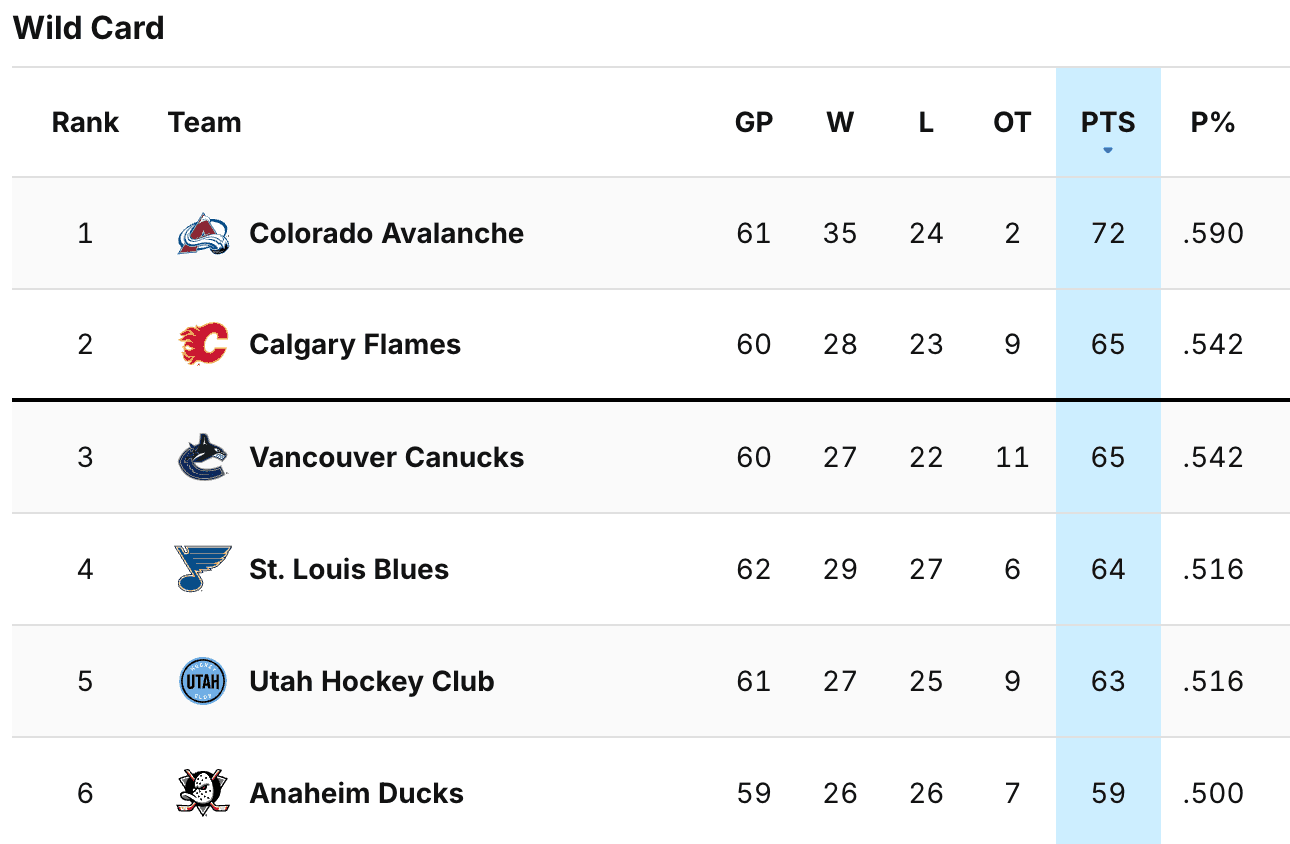Nation Sites
The Nation Network
CanucksArmy has no direct affiliation to the Vancouver Canucks, Canucks Sports & Entertainment, NHL, or NHLPA
The Canucks keeping Brock Boeser as their own rental is needlessly reckless

Photo credit: © Bob Frid-USA TODAY Sports
Mar 3, 2025, 14:12 ESTUpdated: Mar 3, 2025, 14:54 EST
The reality of the Vancouver Canucks‘ situation with Brock Boeser is quite simple.
After offering a five-year contract at $8 million annually that Boeser and his camp turned down, the Canucks now have three options. They can beef up their offer and try to get him signed, move him ahead of Friday’s NHL Trade Deadline, or they can “keep him as their own rental” through the deadline and down the stretch of the season.
That last option basically means that the Canucks, fresh off of losses to the apparently mighty Seattle Kraken and Anaheim Ducks, believe in their playoff chances enough that they can’t possibly part with an impact player like Boeser. First round pick and more valuable assets be damned, this team is IN. THE. HUNT!

Nevermind that a playoff berth likely means a first round matchup against the Western Conference champions, which at this juncture would be the Winnipeg Jets, who beat the Canucks 6-1 the last time the two teams faced off.
Can you sense some sarcasm? Good. You were supposed to. Now, let’s get serious.
Canucks ownership obviously wants playoff revenue. Let’s stop beating around the bush or acting like that’s some big mysterious thing. Projections for NHL playoff revenue come in at over $2 million per playoff home date. The Canucks would be guaranteed two if they make the dance, three if they manage to win a couple of games. If you want to point out that two or even three playoff dates likely aren’t worth the potential long-term setback that would come from not capitalizing and flipping Boeser for assets only to lose him in free agency anyways, I won’t stop you.
What I’d rather focus on is the idea that by keeping Boeser, the Canucks are drastically increasing their odds of making the postseason. And that by flipping him for assets, they’d be drastically decreasing those odds.
Both of these statements are dramatic and fundamentally false.
While Boeser scored 40 goals last season, he’s up to 18 so far this year and is on pace to finish with 25, closer to his normal career goal-scoring rate. Since the JT Miller trade, Boeser has just two goals and one assist in 10 games. His plus-minus is -8 in that time. To his credit, Boeser’s two goals came in the Canucks’ two most convincing Miller-less wins, when they shutout the Colorado Avalanche and held the Toronto Maple Leafs to just one goal in a 2-1 Canucks win.
But that being said, it’s clear that Boeser is best suited as a complementary piece, and on a team that now has nothing but third-line centres, Boeser is displaced. Boeser isn’t driving play on his own, and he certainly doesn’t have a centre he can look to ride shotgun with and post positive results. Not when Filip Chytil is far and away this team’s best pivot option.
When that’s the case, Boeser is hardly helping the Canucks win games. If the result of Boeser on this roster is more losses like the ones we saw the Canucks close out this road trip with, then what’s the big deal about flipping him for assets? It’s hardly Brock’s fault that things have gone this way, but the facts are the facts. This roster is so depleted at the moment that even a talented scorer like Boeser is practically neutralized on a nightly basis.
The only way to fix that roster is by using the assets you do have to go out and acquire players who play with the speed that it feels like this organization has been chasing for over a decade. And right now, the Canucks’ most valuable assets is Brock Boeser.
If the Canucks don’t want to pay Brock Boeser the long term contract north of $8 million annually that he’s likely to get on the open market, that’s fine, and maybe even the best course of action for this team. But if they believe that, they must do the right thing and get assets for him ahead of Friday’s deadline. Failing to do so, only to watch Boeser walk in free agency, would be a mistake.
But now imagine that they choose to keep Boeser as their own rental, only to turn in more results like the ones we saw this past week, and miss the playoffs entirely?
That result would be downright disastrous, and one the Canucks simply cannot be reckless enough to leave the door open for.
At this point, the Canucks know exactly what Boeser is asking for. Boeser and his camp know what they can get in free agency. By keeping him through the trade deadline, the Canucks would lose even more leverage in any contract negotiations with Boeser, and clearly they have a number they’re comfortable going to that comes up short of what Boeser is looking for.
If that’s the case, it’s time to move on from Boeser and call up Jonathan Lekkerimäki, who’s up to 19 goals in 31 AHL games. This is a perfect chance for Lekkerimäki to get some more NHL experience and supplement some of the offensive punch the Canucks would be losing in a Boeser trade.
Not to mention that this management group has shown many times how much they love to flip assets in a hurry. Who’s to say that the Canucks don’t flip the first-round pick they get in a Boeser deal to a team in exchange for a young centre with term? This group loves to get creative, and to get creative, they need assets.
Passing up on those assets in the name of keeping Boeser for a couple more months in which playoffs are far from a guarantee would be a disaster, and one the Canucks could easily avoid by moving on from a player they might lose for nothing.
Get ready, hockey fans! The Daily Faceoff Deadline is happening on March 7th from 11 AM to 4 PM Eastern, and you won’t want to miss it. We’ll be LIVE, breaking down every trade and big move as it happens, with instant reactions and expert analysis from the Daily Faceoff crew. Plus, we’ve got special guests lined up throughout the show, offering exclusive insights from some of the biggest names in the game. From blockbuster trades to surprise moves, we’re covering it all. Tune in to the Daily Faceoff YouTube channel and follow Daily Faceoff socials on March 7th to catch all the action!
Recent articles from David Quadrelli
Breaking News
- Canucks Olympic Hockey Recap: Hronek and Kämpf pick up assists in Czech’s 4-3 overtime loss to Switzerland
- Will Elias Pettersson ever be elite again?: Wagner’s Weekly
- ‘Plays the right way tactically’: Sweden coach Sam Hallam praises Canucks’ Pettersson for two-way play
- Canada Olympic Hockey Recap: Celebrini scores on penalty shot, three total points in massive 10-2 win over France
- Meet the Buyers: Which NHL teams might trade for Canucks’ Evander Kane?

